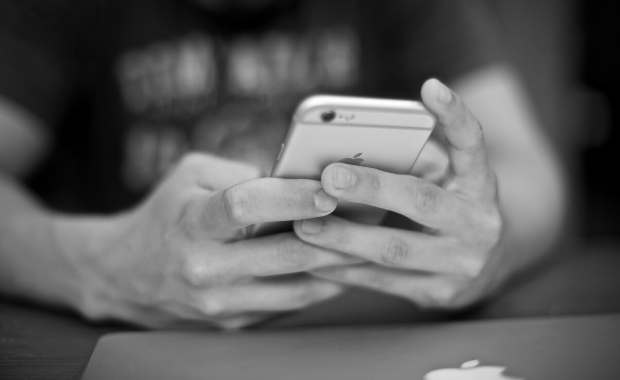Life
Why a Digital Detox Is Exactly What You Need

If you’d like to learn how to improve all aspects of your life so you can live more well-rounded, sign up for the free 90-Day Master Class hosted by the founder of Addicted2Success.com, Joel Brown.
As entrepreneurs and leaders in business, we can be passionate about technology. We’re often early adopters, seeing the opportunities before anyone else, and eager to share it with our network. But spending too much of our time in technology can harm us and even set us back.
Google “anxiety and cell phone use.” You’ll be amazed at what you find. Some studies mention the rising blood pressure rates when a smartphone is in proximity. Others mention how mental health has grown worse because of the increased use of social media and other digital tools.
While technology has made our lives better and more productive, the addiction and overuse of it can hurt us and limit our opportunities in life. When we choose to do a short digital detox, we begin to reset our bodies and minds. It’s a way to evaluate what is important in our lives, and it allows us to experience a more peaceful and fulfilling lifestyle.
Here are some benefits you can expect from a digital detox:
1. It Clears Your Mind
Similar to what a nutrition-based detox does for your body, a digital one resets your mind. It clears all the clutter you have accumulated for hours every day.
Think about your ears for instance. How much noise do you hear every day? When you are commuting, you listen to a podcast. When you are working, you listen to music. You chat with friends on video or the phone. You hear notifications go off every couple minutes. When you go to bed, you might listen to an audiobook.
Your ears rarely have a moment of silence. That’s not including other senses like the time you spend watching a screen. As we consistently entertain ourselves, we are filling up our minds with unprecedented amounts of information. We barely even process what we see and hear.
All these digital devices, apps, and social networks are stimulating your mind and body. It never stops. The human body was never designed to handle so much, so often, in such little time.
It’s no wonder why anxiety continues to rise. When you press pause, you give your mind a chance to reboot and start over. You make better decisions and improve how you interact with the relationships in your life.
Your mind is clear and able to identify opportunities. You equip your mind to create the life you’ve wanted when you protect it and use it for what matters most to you.
“It takes energy, mental toughness and spiritual reinforcement to successfully deal with life’s opportunities, and to reach your objectives.” – Zig Ziglar
2. It Boosts Your Creativity
Think of all the times you should have been doing something but got distracted by your phone or an open tab on your web browser. When we are bombarded with distractions, it’s hard to stop and focus.
When we don’t have digital distractions, we can increase our creative output. We can think clearly now and we can better utilize the resources available in front of us. We can use the extra silence to come up with ideas that can benefit us for years to come.
Much of the lost potential we experience is linked to not allowing ourselves to remove distractions and focus on creativity and output. Think of how a new revenue stream, book, or project can change your life. All it takes is one good idea. But how do you develop one when you distract yourself all day? When we detox, we set ourselves up for possibilities.
3. It Forces You to Reflect
Whether it’s notifications on your phone or scrolling endlessly on social media, we find it hard to reflect. When was the last time you stopped for 10 or 15 minutes and thought about your life? Was it today? A week ago? Or has it been months?
When we don’t reflect, we fall in danger of losing ourselves. Reflection allows us to review the day and our goals. We analyze the good and bad things that have happened; what we can do better and what makes us happy.
Reflection helps us define our identity and what is important to us. You can ask yourself if a big decision or career move actually aligns with what you want in life. It keeps you rooted in who you are.
Think of the people who gained everything they wanted in business but lost their family along the way. Or the leaders who fought so hard for their goals but couldn’t even recognize the person they turned into. Reflection reminds us of our priorities and helps us stop anything that may sneak up to threaten them.
A digital detox allows us to reflect on our lives and be appreciative of what has brought us to today.
“Nothing can stop the man with the right mental attitude from achieving his goal; nothing on earth can help the man with the wrong mental attitude.” – Thomas Jefferson
4. It Gives You Much Needed Rest
I don’t know about you, but the opportunity to nap or find rest throughout the week can be hard to come by. Statistics show that we sleep less than ever. That can decrease our lifespan and quality of life.
The problem with finding time to rest is that we don’t recognize it. Available time to rest exists more than we think. We’re often on our phones hours a day. When we are at home, scrolling down an app, we lose the time we can rest on our patio or spend with family.
When we put away our devices, we aren’t tempted to ignore opportunities for rest. Our bodies weren’t made to be active every second of the day. They need moments to recharge. A detox makes it possible.
This energizes us and reminds us of the importance of maintaining our health.
Everyone should do a detox at least once a year. Detoxes are a great way to reboot your system and help establish new habits in life. Try a short detox for a few days and see how it affects you.
Have you ever tried a digital detox? If so, how was it?
Did You Know
How Skilled Migrants Are Building Successful Careers After Moving Countries
Behind every successful skilled migrant career is a mix of resilience, strategy, and navigating systems built for locals.

Moving to a new country for work is exciting, but it can also be unnerving. Skilled migrants leave behind familiar systems, networks, and support to pursue better job opportunities and a better future for their families. (more…)
Life
10 Research-Backed Steps to Create Real Change This New Year
This New Year could finally be the one where you break old patterns and create real, lasting change.

Every New Year, we make plans and set goals, but often repeat old patterns. (more…)
Life
9 Harsh Truths Every Young Man Must Face to Succeed in the Modern World
Before chasing success, every young man needs to face these 9 brutal realities shaping masculinity in the modern world.

Many young men today quietly battle depression, loneliness, and a sense of confusion about who they’re meant to be.
Some blame the lack of deep friendships or romantic relationships. Others feel lost in a digital world that often labels traditional masculinity as “toxic.”
But the truth is this: becoming a man in the modern age takes more than just surviving. It takes resilience, direction, and a willingness to grow even when no one’s watching.
Success doesn’t arrive by accident or luck. It’s built on discipline, sacrifice, and consistency.
Here are 9 harsh truths every young man should know if he wants to thrive, not just survive, in the digital age.
1. Never Use Your Illness as an Excuse
As Dr. Jordan B. Peterson often says, successful people don’t complain; they act.
Your illness, hardship, or struggle shouldn’t define your limits; it should define your motivation. Rest when you must, but always get back up and keep building your dreams. Motivation doesn’t appear magically. It comes after you take action.
Here are five key lessons I’ve learned from Dr. Peterson:
-
Learn to write clearly; clarity of thought makes you dangerous.
-
Read quality literature in your free time.
-
Nurture a strong relationship with your family.
-
Share your ideas publicly; your voice matters.
-
Become a “monster”, powerful, but disciplined enough to control it.
The best leaders and thinkers are grounded. They welcome criticism, adapt quickly, and keep moving forward no matter what.
2. You Can’t Please Everyone And That’s Okay
You don’t need a crowd of people to feel fulfilled. You need a few friends who genuinely accept you for who you are.
If your circle doesn’t bring out your best, it’s okay to walk away. Solitude can be a powerful teacher. It gives you space to understand what you truly want from life. Remember, successful men aren’t people-pleasers; they’re purpose-driven.
3. You Can Control the Process, Not the Outcome
Especially in creative work, writing, business, or content creation, you control effort, not results.
You might publish two articles a day, but you can’t dictate which one will go viral. Focus on mastery, not metrics. Many great writers toiled for years in obscurity before anyone noticed them. Rejection, criticism, and indifference are all part of the path.
The best creators focus on storytelling, not applause.
4. Rejection Is Never Personal
Rejection doesn’t mean you’re unworthy. It simply means your offer, idea, or timing didn’t align.
Every successful person has faced rejection repeatedly. What separates them is persistence and perspective. They see rejection as feedback, not failure. The faster you learn that truth, the faster you’ll grow.
5. Women Value Comfort and Security
Understanding women requires maturity and empathy.
Through books, lectures, and personal growth, I’ve learned that most women desire a man who is grounded, intelligent, confident, emotionally stable, and consistent. Some want humor, others intellect, but nearly all want to feel safe and supported.
Instead of chasing attention, work on self-improvement. Build competence and confidence, and the rest will follow naturally.
6. There’s No Such Thing as Failure, Only Lessons
A powerful lesson from Neuro-Linguistic Programming: failure only exists when you stop trying.
Every mistake brings data. Every setback builds wisdom. The most successful men aren’t fearless. They’ve simply learned to act despite fear.
Be proud of your scars. They’re proof you were brave enough to try.
7. Public Speaking Is an Art Form
Public speaking is one of the most valuable and underrated skills a man can master.
It’s not about perfection; it’s about connection. The best speakers tell stories, inspire confidence, and make people feel seen. They research deeply, speak honestly, and practice relentlessly.
If you can speak well, you can lead, sell, teach, and inspire. Start small, practice at work, in class, or even in front of a mirror, and watch your confidence skyrocket.
8. Teaching Is Leadership in Disguise
Great teachers are not just knowledgeable. They’re brave, compassionate, and disciplined.
Teaching forces you to articulate what you know, and in doing so, you master it at a deeper level. Whether you’re mentoring a peer, leading a team, or sharing insights online, teaching refines your purpose.
Lifelong learners become lifelong leaders.
9. Study Human Nature to Achieve Your Dreams
One of the toughest lessons to accept: most people are self-interested.
That’s not cynicism, it’s human nature. Understanding this helps you navigate relationships, business, and communication more effectively.
Everyone has a darker side, but successful people learn to channel theirs productively into discipline, creativity, and drive.
Psychology isn’t just theory; it’s a toolkit. Learn how people think, act, and decide, and you’ll know how to lead them, influence them, and even understand yourself better.
Final Thoughts
The digital age offers endless opportunities, but only to those who are willing to take responsibility, confront discomfort, and keep improving.
Becoming a man today means embracing the hard truths most avoid.
Because at the end of the day, success isn’t about luck. It’s about who you become when life tests you the most.
Change Your Mindset
The Four Types of Happiness: Which One Are You Living In?
Most people chase success only to find emptiness, this model reveals why true happiness lies somewhere else.

In a world driven by rapid technological growth and constant competition, many people unknowingly trade joy for achievement. (more…)
-

 Health & Fitness2 weeks ago
Health & Fitness2 weeks agoWhat Minimalism Actually Means for Your Wellness Choices
-

 News1 week ago
News1 week agoBrandon Willington Builds 7-Figure Business by Ignoring Almost Everything
-

 Did You Know2 weeks ago
Did You Know2 weeks agoWhy Most Online Courses Fail and How to Fix Them
-

 Business2 weeks ago
Business2 weeks agoIf Your Business Internet Keeps Letting You Down, Read This
-

 Business1 day ago
Business1 day agoEntrepreneur’s Guide to Pay Stubs: Why Freelancers and Small Business Owners Need a Smart Generator






















